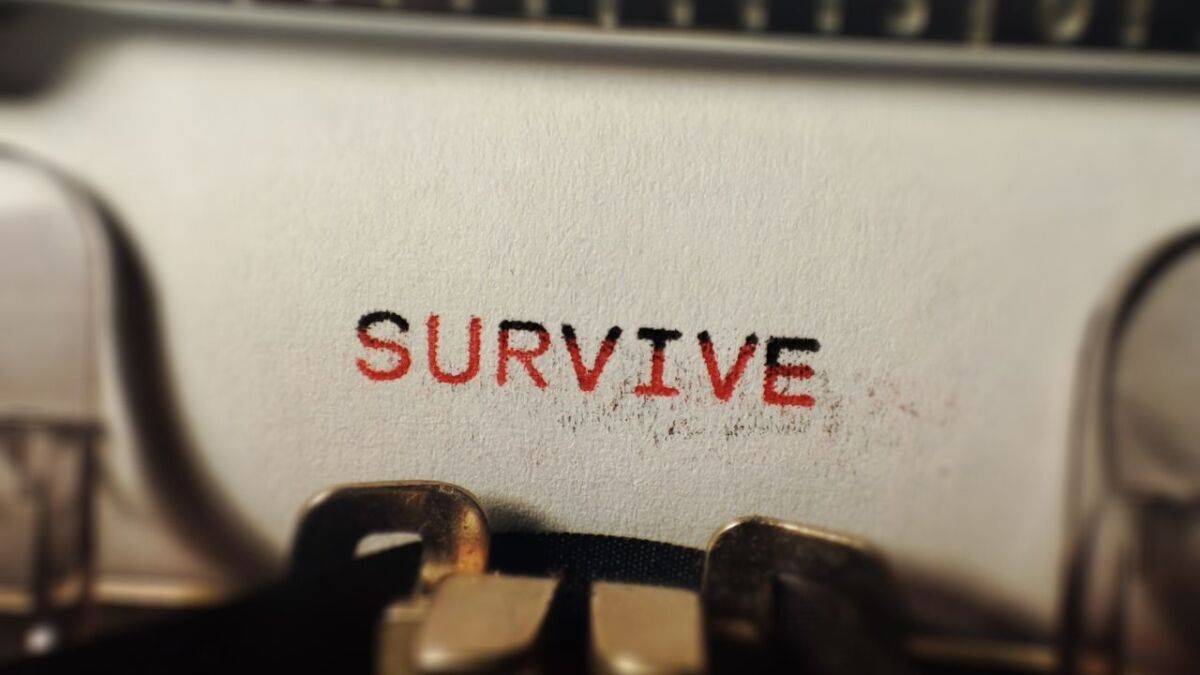
The 7 deadly enemies if you're in a survival situation
👉 The key facts from this guide
- Fear is normal and can be helpful, but it should not turn into panic.
- Regulating body temperature is crucial to avoid overheating or hypothermia.
- Pain can be helpful in identifying injuries, but it can also be paralyzing.
- Hunger and thirst can put a lot of stress on your body and must be managed accordingly.
- Exhaustion, both physically and mentally, can greatly limit your ability to act.
- Loneliness and morality can present psychological challenges that need to be overcome.
When you opened this article, you probably believed that it was about a list of external factors that could easily kill you in your sleep, right?
However, let me tell you that we are very far from that here.
This article is about something entirely different, namely the 7 deadly enemies that come from within yourself.
We are not talking about armed robberies, looters, wild animals or other external factors that could make your life difficult.
The following lines are dedicated to the aspect that can decide everything in a survival situation: yourself.
So take the time, internalize the following sections, and try to figure out which of these enemies threatens you the most.
This way, you can work on yourself and prepare yourself as good as possible for such scenarios.
1. Fear
If you browse my blog a little, you may have come across a few passages that deal with survival and fear.
Furthermore, here, when you are in survival mode, the following premise applies: Fear is normal and can help you, but it should never overwhelm you and turn into panic.
Caution is, of course, better than recklessness. Therefore, it does not harm you to always keep your surroundings in view to protect yourself from potential threats.
However, if fear of danger paralyzes you and prevents you from achieving important daily goals, you are indeed an easy target for aggressors of any kind.

Maybe you would like some tips on how to overcome fear or even eliminate it completely.
However, I have to disappoint you in this regard because completely shutting off fear is not easily possible without tinkering with your genetics.
Instead of trying to get rid of fear, you should start accepting it for what it is: an early warning system and, in case of emergency, a motivator.
Use feelings of fear by learning how to sharpen your senses through them while remaining functional. Don't fight against them, as you cannot win that battle.
But what I can recommend is learning how to handle panic, as it is extremely dangerous in emergencies. Have a look at my guide on panic here.
2. Body temperature
As you may have noticed, we humans are not necessarily equipped with the best conditions to survive in the wilderness.
We have no claws, no long fangs, and no thick fur. Especially the latter could sustain us in survival situations (but there are sleeping bags and sleeping mats for that).
Our body temperature ranges between 36.5 and 37.4 degrees Celsius on average. Slight variations are also completely normal, as long as they stay within a certain range.
However, us humans tend to overheat or get hypothermia relatively quickly if we are not careful.
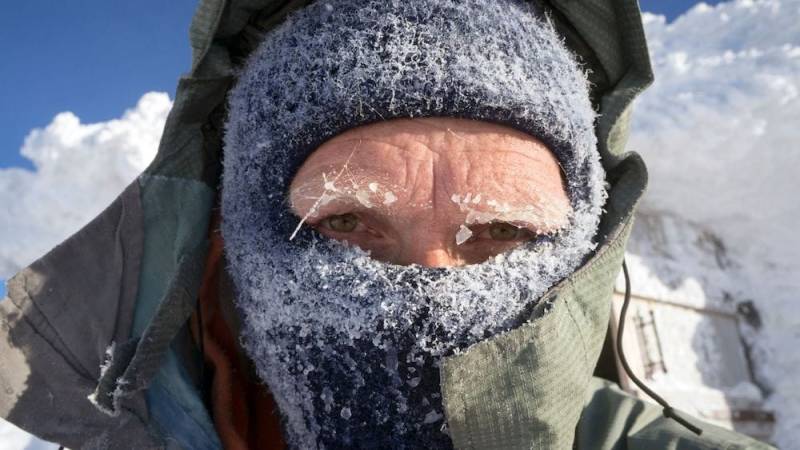
Both overheating and hypothermia can make you unable to act over time, and can even kill you in the worst case.
It would be optimal if you are aware of the temperatures and climate conditions of your surroundings and can adjust yourself accordingly.
To avoid hypothermia, you should equip your survival equipment with emergency shelter, blankets, and tools for lighting fires.
Dress in layers according to the onion principle. Furthermore, make sure to always stay dry. You would rather not experience how your wet clothing or skin freezes quickly.
Moreover, always keep moving so that your body temperature continues to regulate itself as good as possible.
If you are in danger of overheating, immediately find a shady place and rest. Drink enough, cover your head and neck, and stay where you are for a while. Give your body the chance to cool down and get rid of clothes that are too tight or keep heat in your body.
Read also
Why do people wear so much clothing in the desert? - In the desert, the population wears long black garments, usually made of thick fabrics. Why don't they wear t-shirts and instead wear black clothes?
3. Pain
This point is also a double-edged sword. Pain can help you identify injuries to your body and act against them. However, severe pain, like the fear mentioned earlier, can immobilize and make you unable to act.
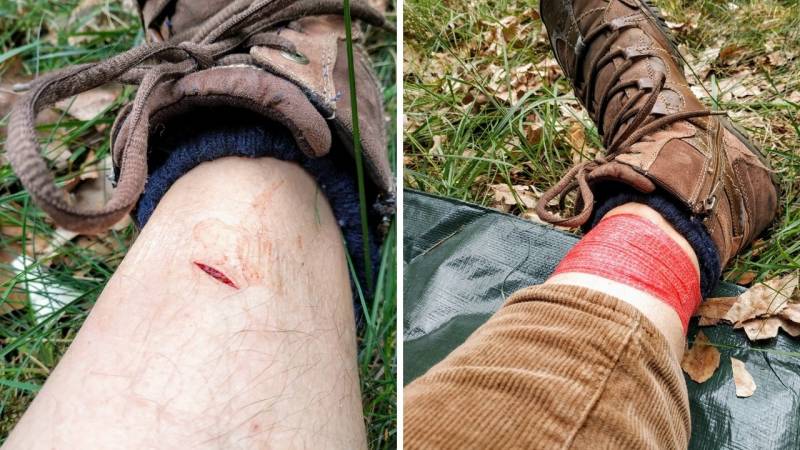
If you experience pain during a survival situation, quickly identify the source of the pain. If you find a wound, treat it immediately if possible. If not, you must decide whether to persevere or take a break until you are ready to continue.
Ideally, you would avoid experiencing pain beforehand by not risking injury or being reckless with your body.
Unfortunately, injuries and pain cannot always be avoided, so you must know how to deal with them in case of an emergency.
Maintain fitness and strength in preparation, learn your body and its limits, so that even in a survival situation, you know what your body is capable of and what you should avoid.
4. Hunger
Let's get one thing straight: I'm not talking about a little hunger when you haven't eaten in a short time or when you crave sweets.
When I talk about hunger, I mean real hunger, the signal that your body urgently needs nutrients to keep you moving forward in a survival situation.
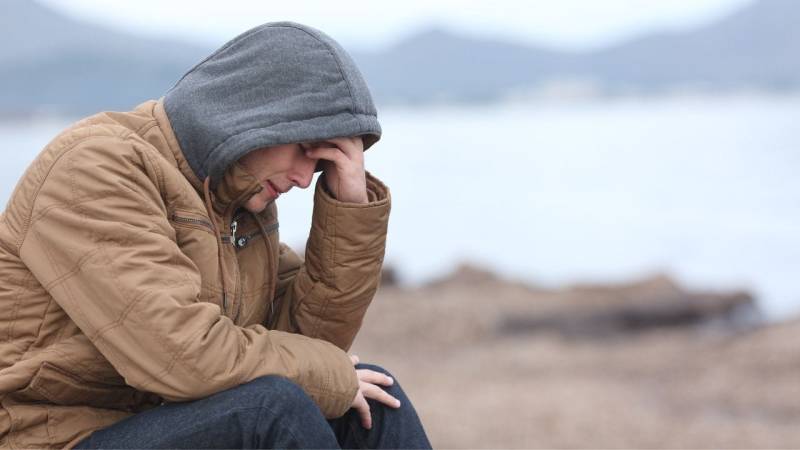
Sure, if you are at home or generally in civilization, even strong hunger is not necessarily a problem. It will pass with time or can easily be satisfied through delivery service or a quick shopping trip to the supermarket, fast food restaurant, or bakery around the corner.
However, if you find yourself in the middle of a survival situation, like on a deserted island, things look quite different.
If you're moving around in nature, you'll inevitably burn more calories than you might spend 8 hours in an office during the day. Therefore, your body demands more energy – logical, right?
Make sure you always carry enough provisions that weigh as little as possible but can sustain you for long enough (Survival Basics: what food to take to the wilderness?).
Since these provisions can eventually run out, you should always be able to find new food. If you need to go hunting, fishing, or foraging for berries, mushrooms, and plants, you should be appropriately equipped.
A knife, a fishnet, or fishing rod, as well as a book on edible herbs, mushrooms, and berries, in case you don't already have this knowledge, would be very useful.
Also read
Edible plants: this emergency food can be found in the forest - Are you unsure which plants you can eat in an emergency? Then let's learn together, and I'll show you how to guarantee that you won't starve in the woods.
5. Thirst
Thirst behaves similarly to hunger, only much worse.
In an emergency, you can survive without or with little food for several days or weeks, but dehydration takes hold after just a few hours without fluids. Without drinking, a human can survive a maximum of 3 days on average.
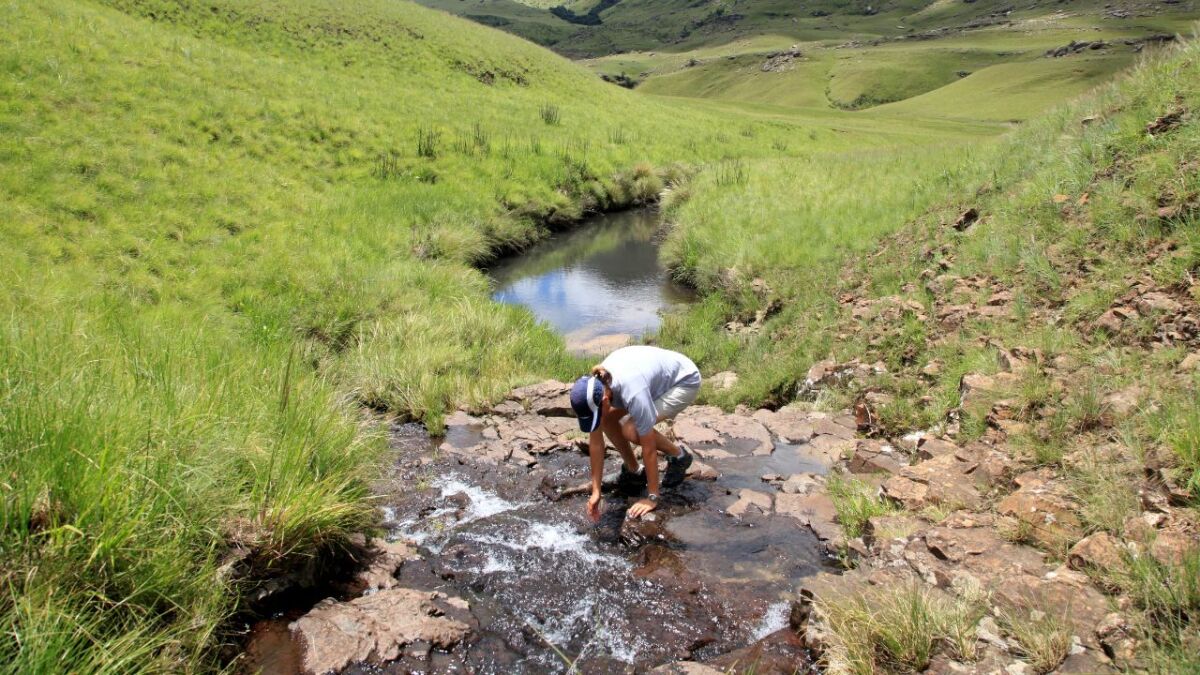
The effects of dehydration become exponentially worse with each passing hour and quickly make it impossible for you to move, let alone handle any necessary survival tasks.
So, always carry enough water with you.
If your water supplies are running low, you should quickly find a way to refill them. It's best to pack a water filter (here's my top list) and water purification tablets in your equipment, so you can obtain water from rivers, lakes, and other sources whose purity you don't know.
Anything that can help you fill, clean, or boil water will help you in this situation. Continuous water supply should be a main focus in any survival situation.
Read also
Finding, collecting, filtering and making drinking water - Finding water is one of the most important survival skills. In this article, you will learn everything about precious water: how to find, collect and filter it.
6. Exhaustion
Let me be clear in this section as well. I'm not talking about simple fatigue that affects every person. If you get tired over time, find an appropriate sleeping place and take care of your needs.
Real exhaustion, which can arise from overexertion, nutrient undersupply and lack of sleep, will push you - faster than you think - to your limits.
But psychological influences can also drive you to the edge of exhaustion without you even noticing.

No matter how stressful, exhausting or even painful the current scenario may be for you, constantly try to keep an eye on your surroundings and your senses sharp. Don't let physical or mental exhaustion overpower you so much that you can no longer perceive or want to properly assess your environment.
If you feel your attention is running out, take some time to regroup. Yes, you might now wonder if it's right in a survival situation to rest and take a few minutes for yourself, when new tasks have to be tackled constantly and without interruption.
Let me tell you the following: You too are a human with limits.
Sure, these limits can be exceeded at times, but eventually, it will come to an end.
Breaks, whether physical or mental, are an absolute must for every person. It doesn't matter if the threat is burnout in the workplace or death from exhaustion in a survival situation.
7. Loneliness and Morale
Humans are social animals, this fact cannot be shaken. Even the happy loner realizes this in a survival situation when they are completely isolated from others of their species, left to survive on their own.
This is particularly critical for people who have spent a lot of time and long periods in society and relationships - and suddenly find themselves completely alone.
Loneliness can make you depressed, which in turn makes you weak and unable to act.
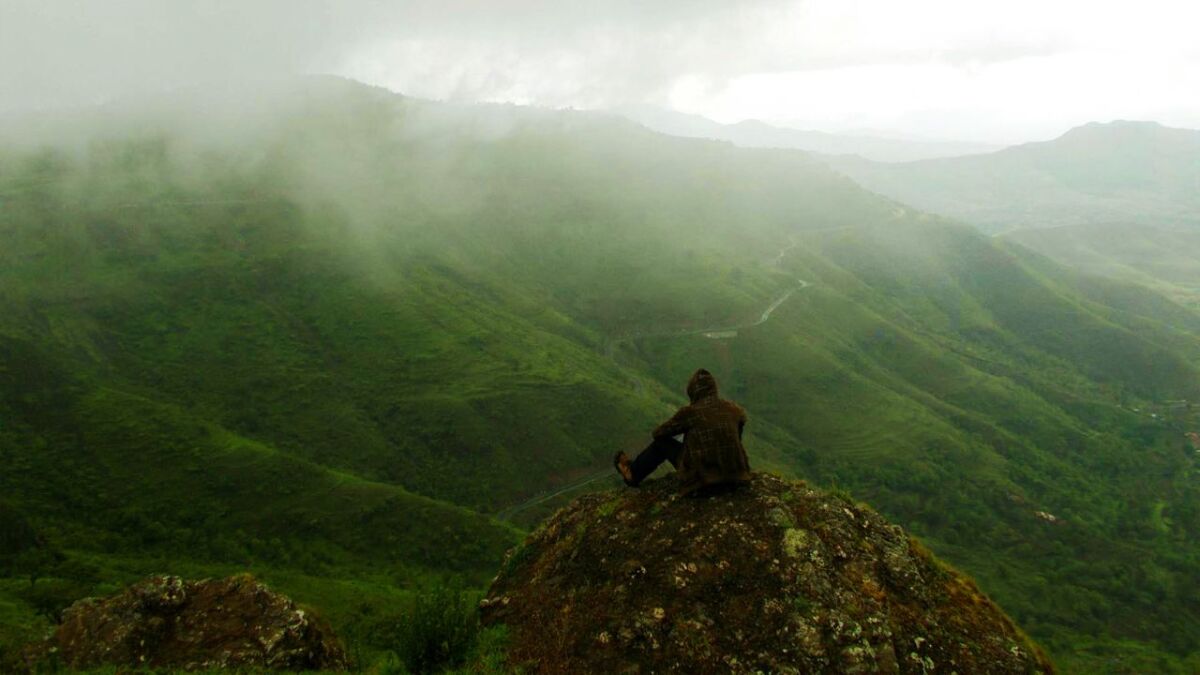
Apathy, indifference and self-surrender will be your constant companions if you're not careful. But what can you do if loneliness holds you in its cold grip and there are no people around you?
First, you should make sure that you are always busy.
Find meaningful tasks or activities to distract you that you enjoy and bring you joy, such as:
- Making fire
- Searching for water
- Searching for food
- Building shelter
- Determining directions
- Preparing distress signals
Furthermore, you should be aware that your current situation is not a permanent state.
There are still people out there in a different place, whom you will meet in the foreseeable future. Therefore, also prepare for this and always keep in mind that there is always hope to find like-minded people at any point in your journey.
Furthermore, morale and motivation can dwindle over time, which is completely normal and not a cause for concern. However, do not fall into a routine that takes away the joy of daily tasks.
Read also
The Plan to Survive Three Days in the Wilderness - This 72-hour plan will give you enough time to wait for the rescue team to arrive. It is your job to stay in place.
Create small routines and rituals, similar to a certain everyday life. Always try to motivate yourself anew and clarify it for yourself that this condition is not permanent.
It always helps to work towards something, rather than vegetating aimlessly.
Conclusion: Avoid anything that makes you unable to act!
If you take a closer look at the individual points, you will at least find a major commonality.
Each point contains a negative factor that can render you powerless during a survival situation. This is precisely what you must prevent at all costs!
You see it in the animal kingdom: to survive, the predator must hunt, the prey must flee, the squirrel must gather its nuts.
At all times, everywhere, the ability to act must be ensured. So create a balance between tasks and rest so that you can overcome any difficult situation.
Furthermore, always stay prepared and start now by putting together your survival equipment so that you are as well-prepared as possible in the event of such a scenario.
Take a look at this article, for example: Necessary qualities of a survival artist, or browse through my blog and find exactly the information you need.
And don't underestimate the top survival skills you may need to survive another day in a disaster scenario.


Author of the guide
Martin Gebhardt
Hey, I'm Martin. On my blog, you will learn the basics and numerous details about living in the wild. I think survival, bushcraft and the good life in nature are the keys to happiness. Find me here on Instagram or on YouTube. You can find more about my mission on the About Me page.
Was this guide helpful?
36 people found this guide helpful.
4.89 out of 5 points (37 Ratings)
Comments (0)
This post may contain affiliate links. So if you click on the links and make a purchase, I will receive a small commission at no additional cost to you. Click here, to learn more about it.


